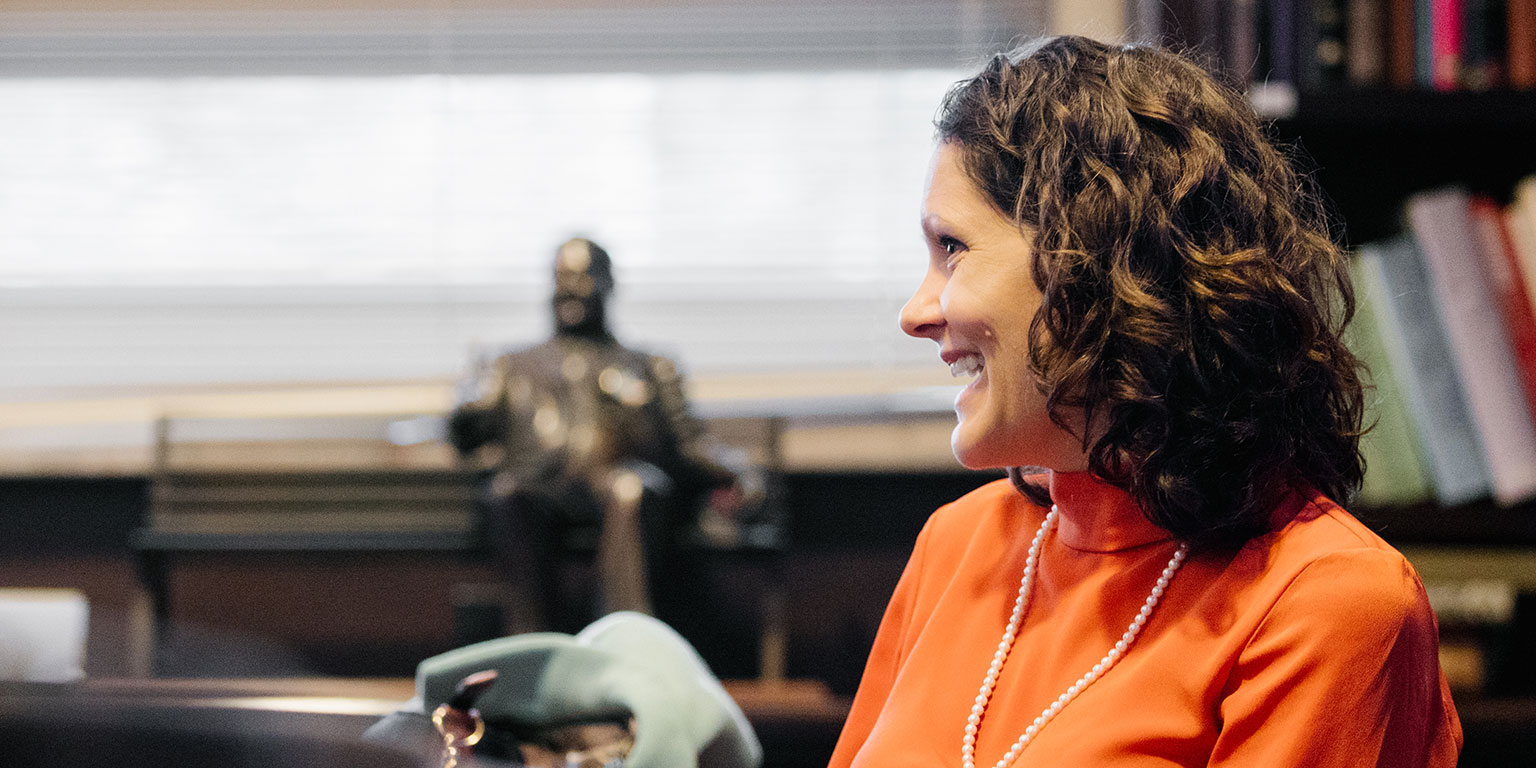By Jennifer Garrett | Spring 2018
Photography by Maximillian Tortoriello
I hope you’re not queasy, because this is not work for the faint of heart. Or stomach. Getting squeamish would get in the way of the work itself, which is to help people, to save lives, to make things better, however you can, in whatever way you can.
Sometimes that means sitting in an office in Washington, D.C., talking with people around the globe. Sometimes it means looking at the data, all the data in all its forms, and analyzing it, verifying it, shaping it, pushing it. And sometimes it means working in the field, from Africa to Afghanistan, doing everything from physically removing worms from children to teaching HIV-prevention programs.
Jennifer Burnett-Zieman (B.S./B.A. ’02, Biology, Economics, LAMP) has done all of this and more. Currently, she works at Abt Associates as the head of monitoring and evaluation on the Sustaining Health Outcomes through the Private Sector (SHOPS) Plus Project, funded by the U.S. Agency for International Development (USAID). But she started out as a young college graduate, heading to a small village in Ghana as a Peace Corps volunteer.
“I was pre-med at IU, and I went into the Peace Corps, and that changed where I wanted to go in life and how I saw myself being able to use my education,” Jennifer says. “I really didn’t even know that what I do for a living was a job until I went into the Peace Corps.”
What she does now, of course, only bears a tangential relationship to what she did with the Peace Corps — unless you look at the data in the right way. Although she initially wanted to work in public health during her stint with the Peace Corps, what they needed at the time was a high school science teacher.
And so, for two years, she taught high school science. That was just fine with Jennifer. Her approach to the work, and the world, is a pragmatic one. What is the need? How can it be met? Where can she be most useful?
In other words, she looks at the numbers. Jennifer taught classes with as many as 71 students for her “day job,” and then she worked on secondary projects like biking to remote areas to provide HIV/AIDS education.
“I loved it so much,” she says, “I actually extended for a third year.”
That year, she moved to Kumasi, Ghana's second largest city, to be the volunteer leader for the area, supporting volunteers like herself and working with the regional ministry of health to train associations dedicated to helping people living with HIV/AIDS. By this time, she knew she wanted to continue to work in international development — and that meant returning to the classroom.




